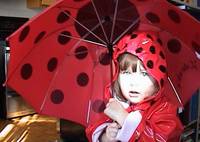Having all this information available at my fingerprints does more than help me find my notes faster. Yes, when I'm trying to track down an article I wrote many years ago, it's now much easier to retrieve. But the qualitative change lies elsewhere: in finding documents I've forgotten about altogether, documents that I didn't know I was looking for.
Steven Johnson witnesses the birth of new mental links:
Now, strictly speaking, who is responsible for that initial idea? Was it me or the software? It sounds like a facetious question, but I mean it seriously. Obviously, the computer wasn't conscious of the idea taking shape, and I supplied the conceptual glue... But I'm not at all confident I would have made the initial connection without the help of the software. The idea was a true collaboration, two very different kinds of intelligence playing off each other, one carbon-based, the other silicon.
No doubt some will say that these tools remind them of the way they use Google already, and the comparison is apt. . . But there's a fundamental difference between searching a universe of documents created by strangers and searching your own personal library. When you're freewheeling through ideas that you yourself have collated — particularly when you'd long ago forgotten about them — there's something about the experience that seems uncannily like freewheeling through the corridors of your own memory. It feels like thinking.
I say these tools are not helpful to such a revolutionary degree as much as we've become lazy and sloppy and maintaining our own neural connections. A minor example: when I'm plumbing an idea, I often turn to dictionaries and encyclopedias as a reminder of other "senses" and uses of words or objects. These word-processing tools can help facilitate our own cognitive exercises, but are our brains really so jammed to bursting that we will come to depend on machines to access them?
Google as a linguistic tool, far from perfect but democratizing the way linguists work:
Allowing anyone to conduct his own impromptu linguistic research, some linguists hope, will do more to popularise their notion of studying the intricacy and charm of language as it really exists, not as killjoy prescriptivists think it should be.
Beethoven is alive and well in America:
"In times of need, on great occasions when people have looked for something in art of a suitable magnitude to dignify or commemorate an occasion, the music of Beethoven is turned to over and over again. I think it's a feeling of universality. Beethoven's music is not about himself. His music is about everything that moves and lives and breathes and feels, and it has proven to be a great connector among humanity."
Beethoven, of course, is Beethoven — everyone knows him by reputation (and primarily the symphonies). Cynic that I am, as a teenager I decided he was overrated, populist. How little I knew.
"You know, one can go to museums and look at great paintings and great statues over and over again, and they never change. In music, the written piece is the same. Yet the interpretation of it is always, always different."
Ah, the Late Quartets. I was introduced to the Late Quartets by a friend when we were studying T.S. Eliot's Four Quartets. I fell instantly into a deep emotional relationship with this music, ongoing and ever-evolving.
Happiness in balance: "one person's pay rise is another person's psychic loss."
Exhibit "Turks" at London's Royal Academy of Arts:
It gives "a unique insight into the extraordinary legacy of the Turks", is a welcome indication that Turks are now happy to accept a wider identity than that imposed by Ataturk...
"Although the Turks were not always the makers of these works of art," it admits, "they played an important role in the formation of new artistic traditions and presided over polyglot societies that were characterised by dynamic cultural exchanges" — which is to say, the show is a hodge-podge of stuff from many places, many tribes and many periods.
A crossroads.
To the stars:
I consider myself fortunate to be living at a time when humans are as close as they may ever come to seeing such a truly alien world with methane slush and new colors in the sky. That is probably what drew me to science in the first place. While literature has the power to lift us from the tedium of everyday existence, science at its best has the power to transport us to totally different worlds, both literal and metaphorical, to take us where our imaginations may never have otherwise traveled.
...The universe continues to surprise us in ways we can never anticipate. Ultimately it is far more interesting than anything that science fiction writers or artists may imagine. Life may imitate art, but ultimately it transcends it. Which is why we sometimes need to turn to the universe itself for inspiration.







